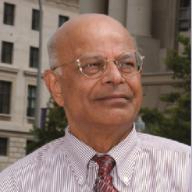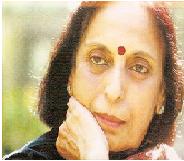(Originally written in Gujarati by Dr. Ramesh Kothari and published in Abhidrishti, May 2008. Read out before staff and students of Govt. Arts College, Talaja, Bhavnagar, by Dr. Aniruddhsinh Gohil, a senior professor of Gujarati on the occasion of Teachers’ Day, September 05, 2022)
My young friend!
Let me first congratulate you on choosing to be in academia. I do not know how much eligible I am to write a letter of this kind. Nevertheless, driven by the notion that I shall be failing in my duty if I do not render before you the essence of a spectrum of experiences, observations and insights gained during my long-standing career, I see it right to frame a dialogue (or a monologue) such as this.
Society rightly has greater expectations from people engaged in our profession. To become a teacher is far easier; to accomplish as a tried-and-tested one is difficult. Teachers, lecturers and professors do not read, hardly visit libraries, avoid attending seminars if not compulsory, do not deliver lectures, are interested in discussing share-market and tax-saving investments more than teaching – do not discard such statements simply as irresponsible, prejudiced and meaningless if they hit your ears; rather accept the part of the fact in them without feeling inferior.
Friend! Your behavior as a person and a teacher should be dignified and appropriate always at all levels – with students, parents, colleagues and management. You must raise your voice against injustice or exploitation but not at the cost of decorum.
In this age of information explosion, you cannot afford to be negligent or lazy. There are chances your students may be more well-read and equipped than you. My teacher used to tell me: “A teacher of English should know everything under the sun.” The sentence is equally applicable to teachers of other subjects too. Consider Umashankar Joshi’s line “E te Kevo Gujarati / Je ho keval Gujarati?”[1] in a different context: “What a teacher is he, who is confined only to his subject!” Alas! We have entered times when it is a happy state even if a teacher reads his own subject well. Amidst all this, my friend, keep Dawar, Mavalankar and P C Vaidya etc. as your idols.
I would like to draw your attention to a slightly sensitive point. Financial matters are significant, but see that you do not remain engrossed in calculations always. You need not fuss over going an extra mile or working for an hour more for your colleagues or institution. The tendency to get blown up for having to take a lecture or two more or assess a few more answer-sheets sometimes does not seem healthy to me. In this context, I am reminded of the penetrating words of V. V. John, an educationist and former vice-chancellor of Jodhpur University, who corrected his faculty members when they had gone to him complaining of their excessive workload: “Don’t say workload. Load is carried by donkeys. Say ‘working hours’.” Our work – something we have chosen to do – should not look burdensome to us.
Friend! Let not only your institution but also the society benefit out of your knowledge, skills, understanding and sensitiveness whenever required. I remember the words of Shri Kuleenchandra Yagnik during his visit to our institution: “The face of a village, that houses twenty to twenty-five postgraduates, should not take time to change.” The sickening face of our society awaits you for regaining its beauty. It is your moral responsibility to pay back to the society by rendering service in areas that interest you.
Form a habit of continuous introspection. Internal development is as important as external or material progress, probably more. If you have a considerable bank-balance, land, shares, car, but have not read a few good poems, not memorized a few enduring verses, not acquainted yourself with literary-cultural ambience of your time, if you have not watched a few beautiful movies and kept yourself away from soothing notes of music, if you have never wandered amidst the world of mountains, forests and birds, can you say you have really developed yourself? “The seeing see little”, said Hellen Keller. If we, who have eyes, do not see or read things worthy, there is no difference between us and the blind.
There is no need to remain under the illusion that fetching a degree by any means makes you competent or worthy. Even in case of senior teachers of our times, the command over their subject, style of expression, faulty pronunciation, etc. compel us at times to think that the allegations and stereotypes framed on teachers by our society are not without any reason. “Degree-holders who may be deemed incompetent even for primary schools have been domineeringly lecturing postgraduate classes” – if someone wearily makes a statement such as this, how would you defend?
“When there is no scarcity of unproductive, irresponsible, corrupt employees in other domains as well, how is it justified that everybody targets teaching fraternity?” – we should not hide our limitations by such lame defense. You ought to remember that several future generations have to suffer because of an incompetent teacher.
If you cast an eye on your own career, you must have many teachers who might have taught you different subjects. Yet, there must be one or two affectionate, learned, caring teachers whom you have always fondly remembered. You would definitely like to be remembered in a similar manner by your own students.
Because you are like my son, I have addressed the entire letter in second person singular – with strong faith that you will not feel bad or offended.
My enthusiastic friend! Do not make forced attempts to contrive a position in committees, financial gains and false applauds from here and there. Let your work make the noise. I wish that you never regret the decision of choosing a career in academia over corporate or bureaucracy. That I dare share these thoughts is only out of concern for you.
Consider this letter as a farewell gift from a teacher going to retire very soon.
_______
(Translated by Parth Joshi, Faculty of English, Goverment Arts College, Talaja, Bhavnagar, India)
e.mail : parthdhjoshi@rediffmail.com
•••
[1] Opening lines of eminent Gujarati poet Umashankar Joshi’s poem titled “E te Kevo Gujarati?” written when Gujarat as a separate state was established on May 1, 1960. The poem foregrounds the concept of ‘Vishvamanavi’ and is one of the guiding lines of Gujarat Literary Academy, UK. A rough English paraphrase may be: “A true Gujarati never confines himself only to Gujarat but considers the world as his family.”
![]()


 Am I alone?
Am I alone? When Jawaharlal Nehru, India’s first Prime Minister, gave his famous “Tryst with Destiny” speech on India’s Independence Day, August 15, 1947, he said, “at the stroke of the midnight hour, when the world sleeps, India will awake to life and freedom.” Though he was aware of all the pains that were endured to secure India’s freedom, he was hopeful that “the past is over, and it is the future that beckons to us now.” Since that fateful day, India has changed remarkably. From a timid, diffident, and hesitant nation, it has morphed into an assertive, even aggressive, behemoth. Indian corporations stride triumphantly abroad and smart Indians abroad dazzle their host communities. Despite all this, the country has always lagged behind China in economic progress, but we had the trump card—a multi-party democracy and freedom of press and individual liberty, particularly the freedom to dissent and, above all, the freedom from fear. No more. Presently the freedom that Nehru had bequeathed is squandered. Sadly, India is no longer the country that the Nobel laureate poet Rabindranath Tagore had once envisioned as “the heaven of freedom…. where the mind is without fear.”
When Jawaharlal Nehru, India’s first Prime Minister, gave his famous “Tryst with Destiny” speech on India’s Independence Day, August 15, 1947, he said, “at the stroke of the midnight hour, when the world sleeps, India will awake to life and freedom.” Though he was aware of all the pains that were endured to secure India’s freedom, he was hopeful that “the past is over, and it is the future that beckons to us now.” Since that fateful day, India has changed remarkably. From a timid, diffident, and hesitant nation, it has morphed into an assertive, even aggressive, behemoth. Indian corporations stride triumphantly abroad and smart Indians abroad dazzle their host communities. Despite all this, the country has always lagged behind China in economic progress, but we had the trump card—a multi-party democracy and freedom of press and individual liberty, particularly the freedom to dissent and, above all, the freedom from fear. No more. Presently the freedom that Nehru had bequeathed is squandered. Sadly, India is no longer the country that the Nobel laureate poet Rabindranath Tagore had once envisioned as “the heaven of freedom…. where the mind is without fear.” Presently in India, a climate of fear pervades everywhere, even in poetry. As an American poet writing in Gujarati, Mahatma Gandhi’s language, I am deeply distressed and saddened. On June 25, 1975 Prime Minister Indira Gandhi, fearful of political reversal, threw away her legendary father Jawaharlal Nehru’s legacy—popular democracy and individual freedom—by a stroke of the pen. She then established the Emergency. At the time, one of the strongest voices of dissent against her fiat was that of a great Gujarati poet Umashankar Joshi. As a nominated member of Rajya Sabha, India’s Upper House of Parliament, Joshi thundered that this untoward action would destroy the very truth of life as envisioned in the Mahabharata, an ancient Sanskrit epic. Even during that 21-month long Emergency when press freedom and individual liberty were suppressed, poets like Joshi and other dissenters took great risks to speak freely. Today, it is different. Today, my poet friends in India tell me they are cautious in what they write and say. When I hear this, a part of my being as a poet dies.
Presently in India, a climate of fear pervades everywhere, even in poetry. As an American poet writing in Gujarati, Mahatma Gandhi’s language, I am deeply distressed and saddened. On June 25, 1975 Prime Minister Indira Gandhi, fearful of political reversal, threw away her legendary father Jawaharlal Nehru’s legacy—popular democracy and individual freedom—by a stroke of the pen. She then established the Emergency. At the time, one of the strongest voices of dissent against her fiat was that of a great Gujarati poet Umashankar Joshi. As a nominated member of Rajya Sabha, India’s Upper House of Parliament, Joshi thundered that this untoward action would destroy the very truth of life as envisioned in the Mahabharata, an ancient Sanskrit epic. Even during that 21-month long Emergency when press freedom and individual liberty were suppressed, poets like Joshi and other dissenters took great risks to speak freely. Today, it is different. Today, my poet friends in India tell me they are cautious in what they write and say. When I hear this, a part of my being as a poet dies.